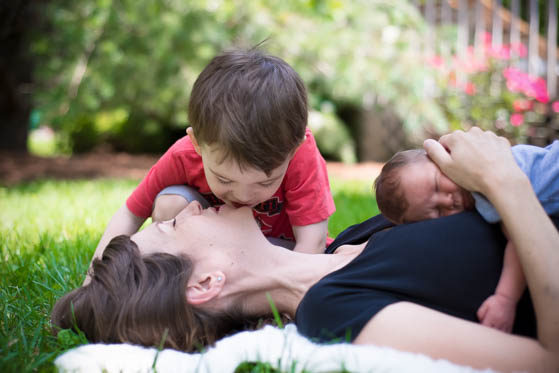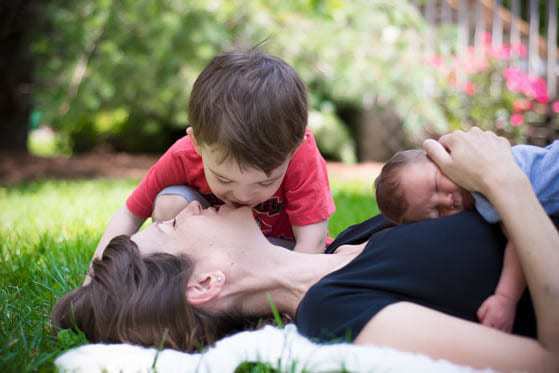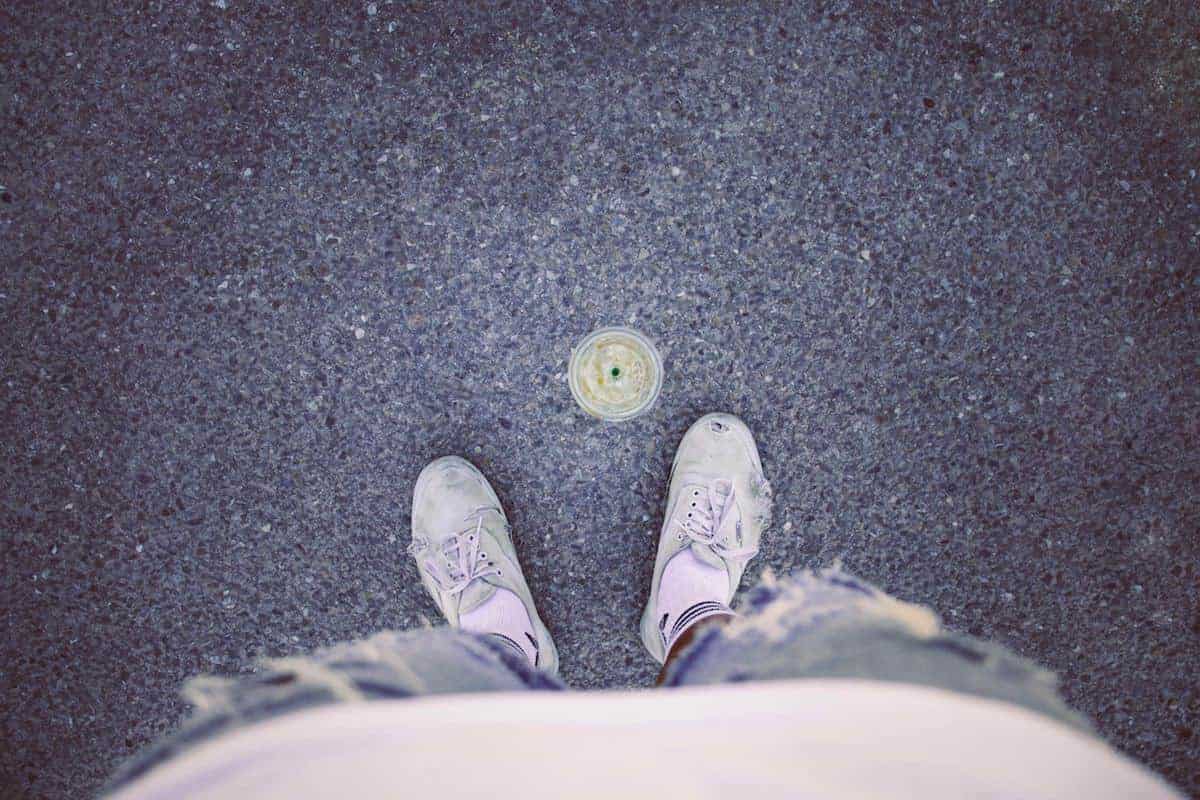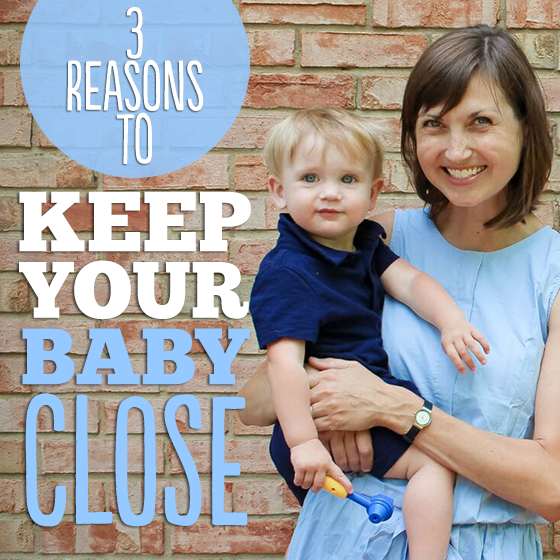We’ve all been there: you’re at the first big family event since having your baby, and everyone’s eager to meet the newest addition. Well-meaning family members touch your baby’s chubby cheeks and stroke your baby’s mop of fuzzy hair — and then come the requests to hold your bundle of joy.
Maybe you’re fine with this — but maybe you’re not. And however you’re feeling is completely okay.
Now, we aren’t faulting your family or friends — it’s natural to want to hold and snuggle a brand-new baby. But there are lots of reasons why it’s okay to politely ask that your family admire your baby from your arms instead. Call it “attachment parenting,” call it “high-touch parenting,” call it simply just wanting to hold your baby; here are three reasons why it’s okay to want to keep your baby close.
It’s Healthier for Baby in the Short Term

Flu season lasts from October through May, with flu activity peaking in the U.S. between December and February.
During a newborn’s first few months, fevers are taken very, very seriously. If your baby spikes a temperature higher than 100.4 F, you’ll need to immediately call your pediatrician. For babies under a month old, you may even need to be readmitted to the hospital.
In addition, babies under 6 months can’t get the flu immunization — or have Tylenol or other cold remedies if they get sick. So, you’ll need to do your best to keep your newborn from getting sick in the first place.
So, in the short term, keeping your baby close will undoubtedly keep her healthier. Experts suggest keeping babies in a carrier when at crowded events, as people are less likely to touch your child when she’s attached to you. If you prefer a stroller, keep the canopy down and covered with a light blanket.
There are Long-Term Benefits

There have been many studies on the long-term effects of attachment parenting, and several undeniable advantages have been found:
-
- Greater independence. Contrary to many opposing arguments, securely-attached children are more likely to explore on their own as they get older. This is because they’ve been given a strong foundation of support and love from which to grow.
- Emotional security. Kids with strong attachment relationships — specifically greater levels of maternal support — showed “higher levels of positive mood, more constructive coping, and better regulation of emotion in the classroom” according to one study at Kent State University. Another study from 1996 found that children from homes practicing attachment parenting were better at dealing with stress and negative emotions than their peers.
- Fewer calls from the principal’s office. Kids whose parents practice attachment parenting have fewer behavioral problems, according to studies. This is thought to be the result of being raised with the positive and sensitive disciplinary techniques promoted in attachment parenting.
- Better overall health. Breastfeeding is a major tenet of attachment parenting — and long-term breastfeeding has been linked to fewer illnesses, allergy prevention and even greater cognitive development (by the way — it’s also healthier for mom, too!).
So keeping your baby close, being sensitive to his needs and attuned to his moods all seem to reap great benefits in both the short- and long-term!
Holding Baby is Good for You, Too!

The desire to hold your baby is a natural instinct for parents. From an evolutionary standpoint, it was crucial for parents to feel the desire to love and care for their children right off the bat — and this is where biology comes into play. Oxytocin is a neuro-modulating hormone that makes humans feel good; and for mothers, oxytocin is released when a baby breastfeeds, snuggles with them or even gazes up at them. Quite simply, holding our baby feels good to us as parents.
Holding your baby also reduces a mother’s stress levels; many report lower levels of depression and seem to be able to be more sensitive to their baby’s cues — and the babies are more responsive to their mothers. The increased touch helps babies recognize their mother earlier, strengthening the early bond between mom and child. In fact; it works the same way with fathers, too!
So remember: it’s okay to want to hold your baby! You’re not ‘spoiling’ him — you’re establishing a foundation of trust, emotional support and unconditional love. And keeping him healthy during cold and flu season, too!
Sources: 1. Parents.com, Surviving Baby’s First Cold and Flu Season | 2. Scientific American, How Important Is Physical Contact to Your Infant? | 3. Psychology Today, The 4 Principals of Attachment Parenting and Why They Work | 4. Dr. Sears, Attachment Parenting Explained | 5. Parenting.com, The New Science of Mother-Baby Bonding.
Photo credit: Sarah M.









































